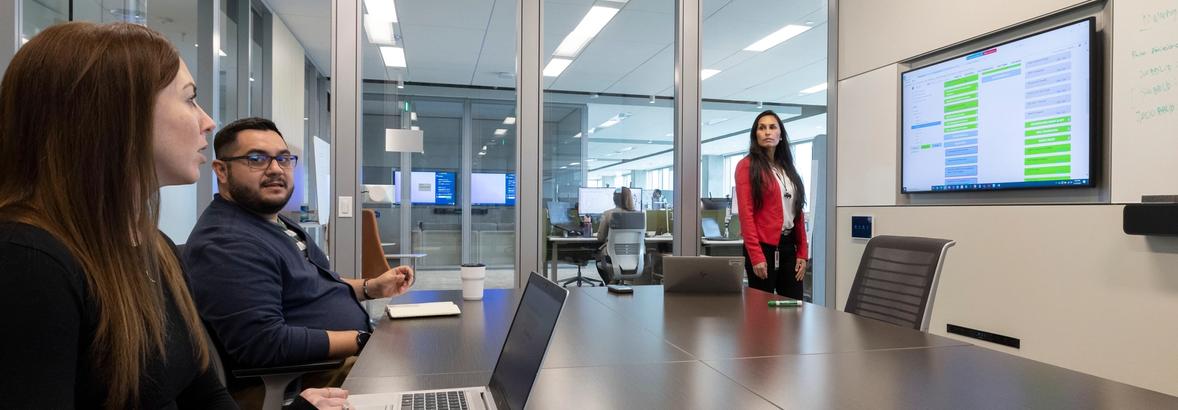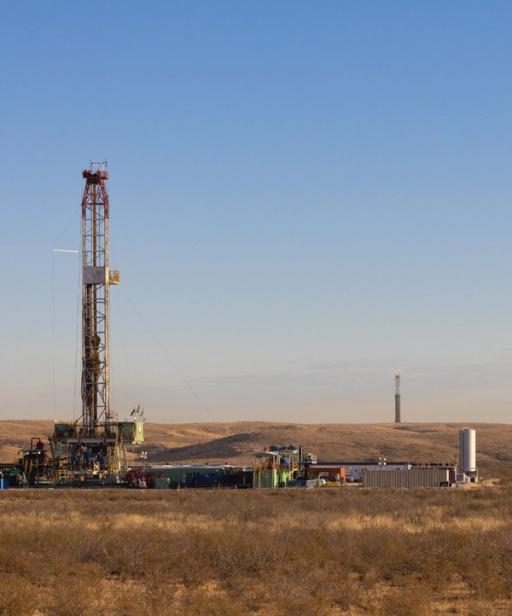

Supply Chain Management
Marathon Oil’s vice president of Global Supply Chain oversees our supplier relationships, which are governed by the Third-Party Services element of our Responsible Operations Management System (ROMS), Procurement and Contracting Policy, Anti-Corruption Compliance Policy, Code of Business Conduct and our health, environmental and safety (HES) standards and policies.
In 2021, we continued our focus on the health and safety of our employees and contractors and continued to adapt to the ongoing pandemic. This is especially true in Equatorial Guinea, where we had to work closely with critical suppliers to help ensure our access to services was balanced between navigating governmental requirements that limit access to the country and our own pandemic protocols.
2021 proved to be a challenging year as access to resources in the market became increasingly tight, while global material shortages and supply chain bottlenecks added layers of complexity. Open communication and mutual transparency with suppliers, in which they shared their constraints and Marathon Oil shared our planning and forecasts, was the primary reason our North American operations did not sustain any supply chain shortages for the second year in a row.

Beyond Our Operations
We expect our suppliers to adhere to our high standards in all they do.
Supply Chain Monitoring
Before working with a new supplier, Marathon Oil follows a vetting process to determine technical capabilities, complexity and risk of the associated service and a supplier’s health, environment and safety record. Potential suppliers within specified higher-risk categories may need to successfully complete an added layer of due diligence and be approved by Marathon Oil’s Law function before engagement. Our supplier agreements mandate adherence to relevant standards and policies as well as our Code of Business Conduct, which covers ethical, social, labor and anti-discrimination standards.
Once approved, suppliers are informed of Marathon Oil’s anti-bribery policies, have the opportunity to participate in our anti-bribery training and are informed about how to report potential violations of our code, policies and standards to our Integrity Helpline. Our Global Supply Chain team monitors compliance with our Procurement and Contracting Policy as well as our Anti-Corruption Compliance Policy and Code of Conduct. Suppliers may also undergo internal contracts and compliance audits.
Marathon Oil is committed to working with suppliers who uphold the law and applicable regulations, including those related to employment, the environment and safety. We proactively research companies developing emerging technologies that meet our criteria of safety and commercial viability and those that help us reduce greenhouse gas (GHG) emissions. We also regularly assess critical vendors for financial stability and, when beginning work with a new critical supplier, visit their operations in-person when possible.
Supporting Local Content
Through our supplier diversity efforts, we work to increase collaboration with local suppliers. We regularly engage with Indigenous communities in discussions about ongoing and new business opportunities, seeking to understand how those communities and Marathon Oil can work together in a way that is culturally sensitive and enhances the community’s economic capacity.
To help develop local capacity in the Bakken, Marathon Oil strives to award business to companies that comply with the Tribal Employment Rights Office (TERO) on the Fort Berthold Indian Reservation. In Equatorial Guinea, we continue to increase the procurement of goods and services from local suppliers. Strengthening local content continues to be a focal point.
Additional HES Assessments for Safety-Sensitive Suppliers
Before a supplier is approved to work with Marathon Oil, we conduct a thorough assessment of its HES performance and capabilities. We develop management plans for safety-sensitive suppliers aligned with recognized industry HES practices such as those published by the American Petroleum Institute (API) and the International Association of Oil & Gas Producers (IOGP). These plans are based on the supplier’s potential to impact the safety of other workers, the public, the environment and our facilities. Suppliers who provide personnel for safety-sensitive work in the United States must first register with ISNetworld, a global online source that manages, evaluates and qualifies suppliers based on Marathon Oil’s criteria.
All safety-sensitive suppliers are required to complete our HES orientation and Life Critical Expectations course before they’re allowed on our work sites. Our HES team conducts formal, structured safety leadership engagements with critical and new suppliers, as well as those with HES performance concerns. These engagements may include a review of the suppliers’ internal policies and procedures and interviews with their leadership and field workforce to gauge their understanding of their employer’s policies and programs. We also work with suppliers on corrective actions with specific deadlines. If safety and operational performance does not improve, the contract could be terminated.
How are we doing?
Your opinion matters. Please take a moment to let us know how useful you find the content on this page.
If you’d like to give us your feedback on the entire report, please fill out the complete survey for the 2021 report.



















